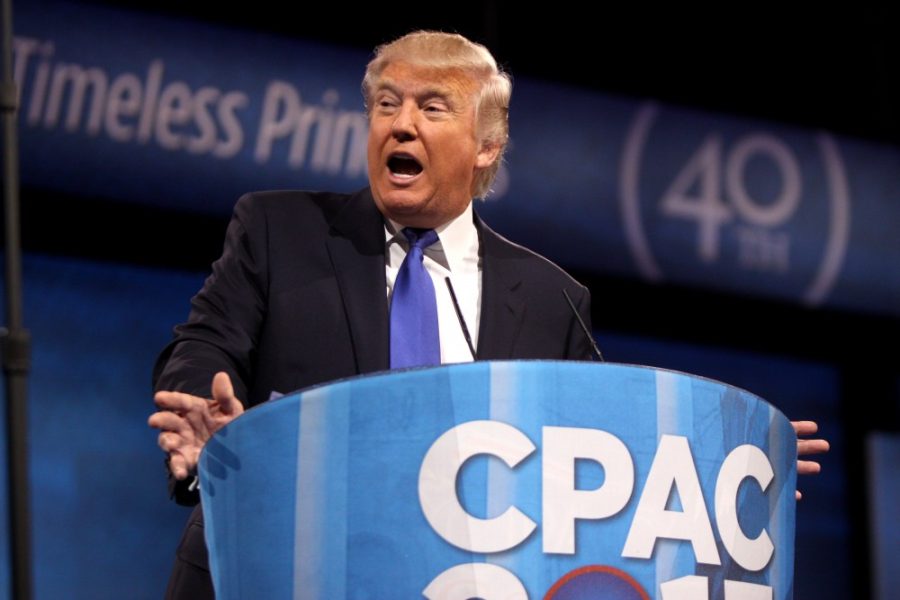
According to fact-checking organization PolitiFact, only 13% of the statements made by President Donald Trump they have checked are true or mostly true. The remaining 87% range from half-true to “Pants on Fire” — the designation used by PolitiFact for statements that are inaccurate to the point of being ridiculous. Those statistics don’t include opinions and give license for a certain degree of hyperbole when used in political rhetoric. Even with those considerations, Trump misleads the public a rather startling three-quarters of the time.
Whether or not these deceptions are attempted on purpose — revelations in Bob Woodward’s most recent book certainly point to at least some of them being intentional — doesn’t matter. Journalists should be pointing out their falsehood no matter what.
As per the Code of Ethics outlined by the Society of Professional Journalists, journalists should, among other things, “Take responsibility for the accuracy of their work. Verify information before releasing it. Use original sources whenever possible,” and “Recognize a special obligation to serve as watchdogs over public affairs and government. Seek to ensure that the public’s business is conducted in the open, and that public records are open to all.”
A journalist adhering to this code would almost certainly be an enemy of the president, but not because they are biased against him on political grounds or out to get him on personal ones. They would be his enemy because their commitment to truth and accountability directly hinder his ability to use false statements and deception to get away with abusing the power he holds as commander-in-chief and failing the people he was elected to govern.
If Trump had it his way, the press would most likely function in much the same way it does in authoritarian dictatorships and oligarchies: essentially as his cheer leading squad. That is not an acceptable form of press in a democracy.
Instead, consider a press that holds fair and unbiased reporting above all else. While this might sound like a utopian option, it is not good journalism. The statements government officials make are important, but for them to carry any value for citizens that require information, the validity of the statements must also be evaluated. A press that reported with no bias against misinformation or abuse of power would be nothing more than a mechanism for government to distribute partisan propaganda.
Another journalistic obligation outlined by the Society of Professional Journalists is to provide information in context. Doing this in the case of Trump means highlighting his past false statements and abuses of power, as well as his repeated skirting if not outright violating of the Constitution. If the media stopped providing context for the news they reported, they would no longer be providing a valuable product to the people.
So, where does all of this leave the current state of media and specifically coverage of the president?
The nature of the way Trump speaks and acts as president necessitates that journalists make a choice. The choice is between coverage that seems fair and unbiased when analyzed without context or coverage that holds the president responsible for what he says and does.
For the sake of our democracy, the choice is clear.
Making false statements should be covered. Abusing power should be covered. Attacking those who attempt to point out these offenses should be covered.
These things should be covered and contextualized and criticized, because they have consequences.
There is one example of this that stands out above all others: the president’s false statements and failed response regarding the COVID-19 pandemic. Trump has made dozens upon dozens of false statements about the pandemic, some of which have led Americans to use deadly methods to attempt to protect or cure themselves. Trump has also lead a disastrous response to COVID-19 that has left almost 200,000 people dead. Estimates put the number of those deaths resulting from the president’s response at 115,000.
The president’s record of previous false statements is relevant every time he makes another one. He spreads misinformation so often that the media is warranted in distrusting claims he makes. Journalism shouldn’t be personally biased against the president or his politics, but it should be biased against misinformation and against the abuse of power. It should be biased against failure to protect citizens. And if one president manages to engage in all of these activities, it should be biased against him so long as he continues to engage in them.
Aidan Rhodes is a journalism major from Flagstaff, Arizona. He is a passionate chef, athlete and writer. Follow the Daily Wildcat on Twitter









